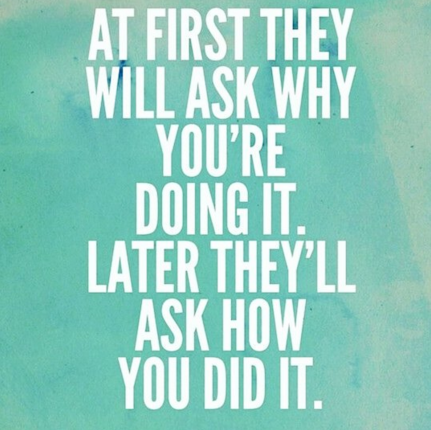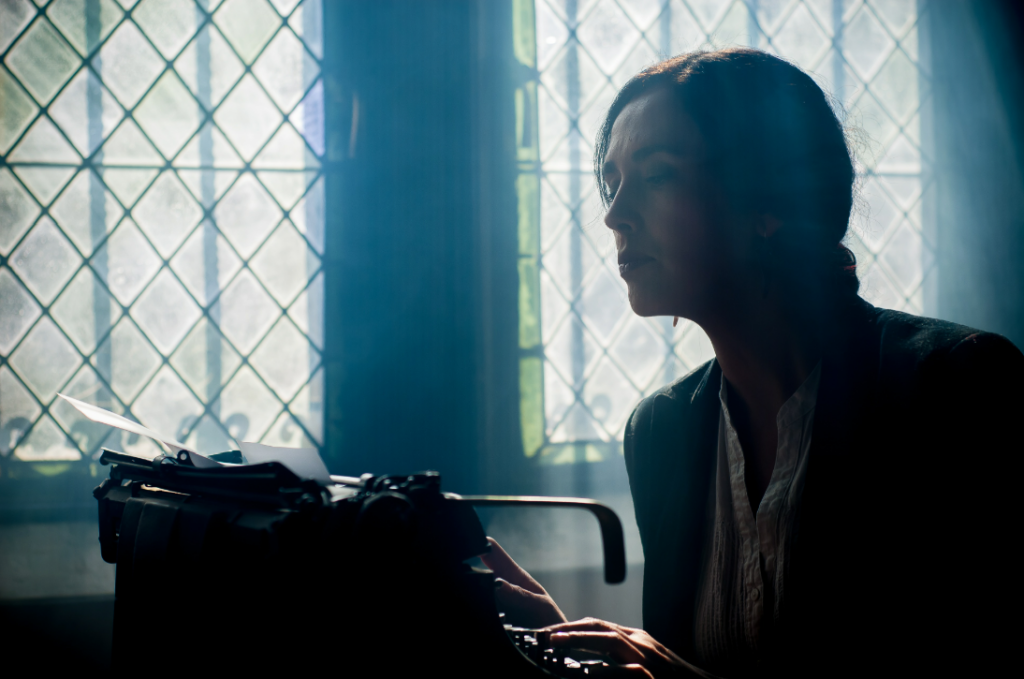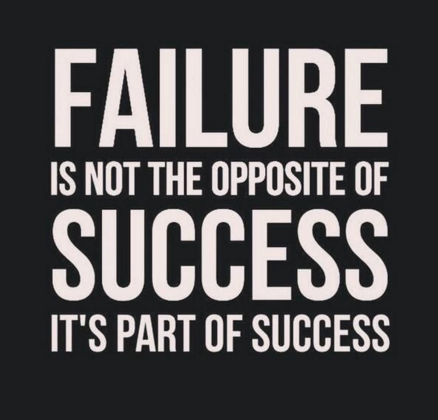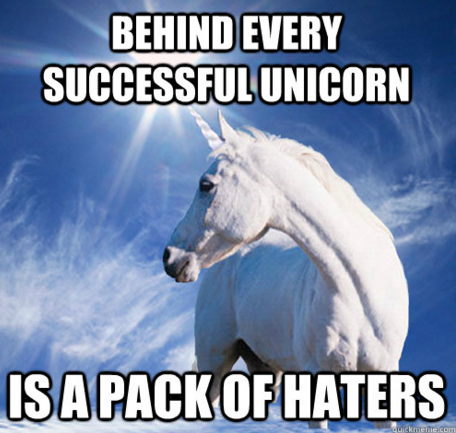
Permission. This might seem an odd word to discuss when it comes to success, but we need to hash out some dos and don’ts before January 1st. New Year’s resolutions are often more about taking freedoms away instead of permitting new ones. In my opinion, this is why a lot of well-intended changes fail to stick, but that’s for another post 😉 .
I’m a HUGE fan of discipline, though admittedly, I’m definitely a work in progress. I confess that, in my drive to be disciplined, I can become rigid, legalistic, and ridiculously hard on myself if I’m not careful.
The trick (as in most endeavors) is finding balance. Balance is and can only be achieved with granting ourselves the right kinds of permission. These permissions are especially vital if we hope to achieve success as authors.
Permission to Be New

Last post we discussed the writers’ journey from newbie to mastery. This ‘permission to be new’ might seem like an easy one. Do NOT be fooled. This permission might very well be the toughest of all. Why? Because our world has a perception problem.
From a novel, to a movie to an HBO series, the audience is ALWAYS witnessing the final product. They’re enjoying the cumulation of countless hours (or years) of work and the efforts of more than one person.
Even with a novel, audiences don’t stop to think that 99% of authors are not, in fact, publishing their first draft. They also don’t realize that FINAL draft came to fruition with outside assistance (editors & proofreaders).
Yes, there are novelists who claim they publish their first drafts, but (aside perhaps from some anomalous savant) they don’t. Not really. Often this I-only-publish-first-draft-novelist writes an excruciatingly detailed outline which they slash, correct, rearrange, etc. THEN they write the novel. Thus, technically, the outline was draft 1-50.
Also there are writers like Dean Koontz. He writes X amount of pages a day and never revises. But, Koontz wrote a gazillion books using many methods until he was so well-trained he could do this ‘magic.’ Remember, though, that even the great Dean Koontz was once new.

Thus expect the world won’t understand why you’re not richer than J.K. Rowling a month after you finish the first draft of your first novel. They’re outsiders who don’t ‘get’ our craft, that it IS a craft with an actual learning curve like um…learning to play an instrument.
People generally don’t appreciate that even J.K. Rowling was a single mother on welfare rejected by more than a dozen publishers. Even her first (reluctant) publisher actively encouraged her to get a ‘real’ job.
Permission to ‘Suck’

This permission goes hand-in-hand with being new, but permission to ‘suck’ is one we’re wise to keep our entire career. Getting words on the page is the most important part of the job. No ‘great idea’ for a book ever became a New York Times best-seller. I cannot recall any half-finished ‘perfect’ manuscript ever becoming a runaway success, but plenty ‘meh’ finished ones have.
And no, I can’t explain it either. There are more than fifty shades of why audience tastes are vastly unpredictable. Suffice to say, the world doesn’t reward perfectionists, it rewards finishers.
Also, be aware that sometimes we’re not the best judge of our own work. We could be tired, have a hormone out of place, woke up too early to the cat puking on the carpet SIX INCHES FROM TILE and we’re hypercritical. Everything word is dreadful, tedious, and pure tripe. Our characters are one-dimensional tropes and a hamster with a traumatic head injury could’ve concocted a better plot.
Face it. We’re loathsome poseur hacks who don’t deserve access to Word…or even to live.
Um, eat a Snickers and take a nap. Then keep writing and resist the urge to edit. There are GOOD REASONS WHY this is a dangerous time to edit.
Odds are you’ll look back in revisions and realize you were being a drama queen. Imperfection is where the true beauty of story resides.
Even if the WIP does need to be ‘fixed’ you’re more likely to fix it, not SMITE it. You’ll actually edit and revise instead of going all Old Testament burning to ash, poisoning wells, then salting the earth….after characters wiped out by Backspace Death.
Permission to Write

First of all, it is perfectly acceptable to write as a hobby and for fun and not to be paid. I crochet. Additionally, I kind of suck at crocheting, but I enjoy it and it relaxes me. My scarves are pretty enough *shrugs*. I’ve ‘mastered’ ONE stitch in four years. Be assured, you will never see my creations for sale for big bucks or any bucks on Etsy because it’s a hobby.
I don’t desire to crochet products consumers would pay money to wear. This means I can put it off until I feel like crocheting. I also can be more laissez-faire with what the final product looks like, because crocheting is NOT my profession.
If, however, we desire to make a living as an author, then this ‘writing thing’ is our job/profession.
Being an author might be a second or even third job, but it IS a job—a ‘real’ one. Writing isn’t our hobby or our ‘little thing’ and it merits serious priority. Laundry, toilets, and figuring out how to get gummy worms out of the XBox can wait or be delegated.
For more on this, I strongly recommend you read one of my older posts Good Girls Don’t Become Best-Sellers (applies to Nice Guys, too, btw).
Permission to Fail

Show me a person who’s never failed and I’ll show you someone who’s never done anything interesting. Afraid to fail? Good, welcome to being human. In my vast experience, only talentless hacks steeped in self-delusion believe all they write is gold.
There’s a balance. Simpering, spineless slackers are as useless as narcissistic, unteachable, know-it-alls. Our goal is to find a happy place in the middle of this bell curve. We should be open to criticism, suggestions and growth while simultaneously being confident and knowledgable enough to know when to stand our ground (lest we end up with a book-by committee).
Humans are wired to learn by failing. Our brains are literally designed to learn by trial and error, which is why I’m adamantly opposed to chastising kids for failing.
I firmly believe our culture’s over fascination with the ‘born genius’ and ‘naturally gifted/talented’ is TOXIC. Kids mistakenly believe if they don’t do whatever ‘perfectly’ the first time or at least super quickly, then there’s something wrong with them. This then carries into adulthood.
Failure shaming, in my POV, generates underachievement (afraid to even try, low self-image) or neurotic perfectionism (hiding oopses, overworking, septic overachievement, terror regarding asking for help). I know because I was reared to be terrified of failing.
This is why as an adult and a MOM, I make sure that failure is embraced and celebrated in our home. Failure is an event, not an identity. I want my son to understand mistakes are stepping stones on the road of progress.
Another reason we’re wise to grant ourselves permission to fail, is a that ‘failure’ isn’t always a bad thing. In fact, failure can actually be a happy accident in disguise.
Two words: Ivory Soap.
Permission to Succeed

To succeed, strangely we must give ourselves permission to win. Bizarre, right? Mmmmmm, not so much.
Fear of failure and fear of success are frequently linked and this paradox could be a blog (or book) on its own. It seems stupid for people to fear success. Yet, many do and for a multitude of reasons. First, humans generally dislike change. Success means massive change. We might feel we are ill-prepared to traverse such unknown territory. We fear what we don’t know and places we’ve never been.
We could also worry that, if we succeed, we might not be able to duplicate whatever it was that brought us ‘success’ in the first place. That we’re a fake, a fraud and never actually ‘earned’ the win.
Perhaps now it’s a tad clearer why fear of success and failure are linked.
There’s another reason many of us fear success, one I haven’t seen discussed much. This manifestation is most common for those brought up in a dysfunctional home/background. We are afraid to be happy and our fear of success is linked to a version of PTSD. Always waiting for the ‘other shoe to drop’ so to speak.
For folks who’ve been through trauma, our brains often cannot discern healthy excitement/arousal felt when experiencing success from the anxiety/arousal before ‘the bad thing’ to come. Our brain believes all ‘arousal’ is bad, thus super scary and to be avoided at all costs. This means when we get close to ‘winning’ we might self-sabotage to alleviate the nerve-shredding anxiety.
It takes some retraining of the old gray matter, but it’s worth it. Yes, give permission to succeed. I know I’m not the only one out there who’s self-sabotaged, procrastinated, or up and quit because I was wracked with fear I couldn’t explain. Trust me, I was as mystified as everyone around me until I understood what was causing this behavior.
It’s okay. Being messed up generally makes for better writers 😛 .
What Are Your Thoughts?
As long as I’ve been at this, I still struggle to some degree with all five of these. Permission to write and to succeed are still the biggies. I struggle with guilt that I’m writing when there is so much laundry to do and drawers to sort and on and on. Additionally, I still procrastinate when I might just succeed because I already admitted I’m messed up and that writing is cheaper than therapy 😛
What about you guys? Gonna ‘fess up and be brave? Are you too hard on yourself? Self-sabotage? Petrified of failing? Ashamed of being new? It’s okay, we are all in the same boat here 😀 .
Hey, there are goodies involved for being bold…
I love hearing from you and am not above bribery!
What do you WIN? For the month of DECEMBER, for everyone who leaves a comment, I will put your name in a hat. If you comment and link back to my blog on your blog, you get your name in the hat twice. What do you win? The unvarnished truth from yours truly. I will pick a winner once a month and it will be a critique of the first 20 pages of your novel, or your query letter, or your synopsis (5 pages or less).
ALSO, NEW CLASS!
The Art of Character: How to Craft Dimensional ‘People’ in Fiction
 Instructor: Kristen Lamb
Instructor: Kristen Lamb
Price: $45 USD (Only $36 with discount)
Where: W.A.N.A. Digital Classroom
When: January 4th, 2018 7:00 P.M. EST—9:00 P.M. EST
No matter what genre we write, the key to writing unforgettable stories always rests with character. How do we create intriguing characters who hook readers and never let them go? What makes a character unforgettable? How do we write stories that endure?
It is easy to fall into tropes and caricatures if we lack a fundamental understanding of human nature and how this plays out in the dramatic narrative. This class will delve into how to add depth to our characters which will, in turn add, resonance with our plot.
This class will cover:
- Discovering Wounds;
- Understanding Coping Mechanisms;
- How Wounds Collide to Increase Dramatic Tension
- How to Create Dimensional Characters
- Using Character to Plot
***A FREE recording is included with purchase.








20 comments
1 ping
Skip to comment form
Excellent post! Thank you for this. The psychology behind success and failure applies to all areas of our lives. I recognize a lot of my own habits and those of people close to me, who are not all writers.
I procrastinate as I read this post…thus avoiding the thousands of words that await my ‘judgement’ as an editor. I love the book I’m working on, and have a lovely sense of relief when I finish an edit — but I also seem to cling to each collaboration, extending it, not wanting it to ‘end’. It’s like my ‘success’ is achieved with each project, and when that project completes, the success ends.
With writing, it might translate to as long as I have a WIP, I’m successfully writing. Fortunately, when I write, I just write – no avoiding or extending.
I love editing, helping other authors, learning through our common goals of producing excellent writing, but it seems to have a different level of permission.
I can now go stare out the window and contemplate all this…including the fact that I’m happy to give myself permission to do so.
Thanks Kristen!!!! :O)
I’ve just discovered material on non-combat related PTSD. You are spot on with seeing the connection to the arousal success causes in people from dysfunctional situations.
There is so much more than writing to be learned at this site!
Thank you so much for explaining where fear of success can come from. I have it, but I’ve never understood WHY, and the usual explanations of ‘You’re just worried you won’t be able to do it more than once’ and ‘You’re just worried that you’re a phony’ never seemed to fit.
Failure is not the opposite of success, it’s part of success! Love this. Need it embroidered on a pillow!
What an excellent post, Kristen. Your insight is amazing. So is your humor, “how to get gummy worms out of the XBox can wait or be delegated.” Hahaha! I love it!
Hubby tells people my writing is a hobby. My mom asks me why in the world I’m still wasting time writing if I’m not making money at it. I’ll stop there.
The failure part is a concept I finally realized some years back and I embrace it. When I visited a classroom of 5th graders with my co-author a few years ago, I asked the kids to raise their hands if they want to be successful. Of course, they all raised their hands. Then I told them “In order to be successful, first you have to fail.” They looked puzzled. Co-author and I explained how successful people practice their skills over and over, how baseball stars have spent years playing the sport, that there are few overnight successes, and learning to not be afraid to fail is part of reaching our goals.
Then I taught them how to do the deep, calm breathing to help them get through rough moments. LOL! That’s a life saver, so I wanted to pass that little trick on to those kids.
Your new class sounds great! Thanks, Kristen.
I am afraid of Getting It Wrong. I keep telling myself that this is my first book, it’s a learning experience if nothing else… but it’s a public learning experience, and my skin hasn’t quite got to the desired level of thickness. Maybe I should crochet myself an extra skin…
I think I’m fearful of all of them, but especially of failure. It has been very freeing to discover that “success” is not what it’s all about. Instead, it’s more healthy to emphasize faithfulness rather than success. And that’s true of everything, from work to relationships to my spiritual life (relationship with God).
I am still struggling with the whole ‘failure’ thing! Rationally I understand its importance but emotionally… not quite there. I’m still carrying the childhood baggage around failing being a massive negative. However, I’m hoping now that I have more awareness and I reinforce the positives enough, I’ll make a change for the better.
I have improved in terms of actively gaining constructive feedback and not feeling miserable if told there are areas that aren’t working/need more work re my writing; and have been sending out submissions for the first book in my paranormal romance trilogy. I no longer feel the fear and misery of writing rejection, but instead see it as a stepping stone to success. Just like any failure. So thanks for normalising failure and further reinforcing it’s importance in order to grow and improve.
Thanks for this post Kristen. I find your words very encouraging as I can relate to this on so many levels. Love that quote about failure. I’ll need to keep a copy of that one!
I really love reading your blogs. They always inspire me to do better. I used to be a “fear of failure” kind of person until I bombed at a multitude of things in a very short time. It took me a while to realize, but I learned I’d spent my life being afraid of something that didn’t need to be scary. I had failed and failed epically, yet I was still alive. It was only after that time that I became brave enough to write.
Kristen,
Thanks for this great post.
I’ve been trying to play the guitar for 20+ years now without much success. One thing I’ve noticed is my tendency to hesitate; getting off one note or chord and move on to the next for fear of getting it wrong. As you might expect this is bad if you are trying to keep a musical rhythm. But why should I care? It is just me and my guitar. And yes I suck at it just like my writing. But what has this got to do with writing, you might ask?
Fear of failure and waiting for the next shoe to drop has always been a part of my life. As an old fart now I feel that in my writing I have to craft the best possible sentence, paragraph and scene right out of the gate, even as a newbie, because there will be no time for a redo. So I hesitate or procrastinate rather than just write. Having a book published posthumously does me no good.
Excellent post, Kristen. You nailed my struggles so perfectly that you could have been writing from inside my head! Especially the guilt about writing when there is laundry to be done. I always think that if I was a “successful” writer, I would feel less guilty about the time I spend writing, yet I do also fear the problems that seem to come with fame. Without a change in mindset, there really is no winning.
I always enjoy your posts but this one really resonated. I never understood why, when things are going really well, I get anxious, and start imagining that something terrible is about to happen. Does our mind not know the difference between good excitement and bad? It’s an interesting concept. I think some of us, with ‘dysfunction’ in our past, struggle to believe that we really do deserve success, and happiness. We know it intellectually but on a deeper level, we’re not so sure…
Thanks for another thought-provoking post, Kristen. Happy Holidays!
Thank you so much for this article. I have PTSD and so understand not being able to feel the real joy when I do suceed. I want to take 2018 as time to renew the ways I look at things. I will be kinder on myself and enjoy the whole experience because more than anything, I love writing.
Yeah, I agree with the point about being afraid to duplicate success…well, if I ever attain success. One thing I keep questioning is: does the manuscript need to be absolutely perfect, free of any possible critique before it is submitted to an agent? I think that is my big fear, but as the post said: the world rewards finishers.
IMO, not only does it NOT need to be perfect, but you need to submit it in a mental state open to THEIR critique, and the improvements that will be made through the editorial process. So yes, best you can possibly make it, but no, you ain’t gonna be perfect, and don’t have to be. Further, even if you were, they’d find things to change. 😉
Fear of success! Gah! I’ve worked through the others to a large extent, but this one… Water-freaking-loo. I have been feeling (yeah, gut feeling, FWIW), for the past few months, like I am on the verge of some huge career breakthrough, but the universe is holding off to keep me from shoving my foot through it in some completely heinous and idiotic way. Here’s hoping I can sort my crap, so the universe can come through with what therapy has finally taught me I deserve, even if I can’t figure out how to let myself have it… Thanks for this great post.
I’m not really sure if we’re permitted to fail, or even make the slightest mistake. I heard some mistakes might have horrible consequences. *sigh*
I’m working on perfection. But then: perfection needs so much time, what if my book never gets published? So many doubts.
When I make resolutions in December I ask myself if I will still be motivated in April. I force myself to be honest and by doing so I make sure I do not have a liquored up eggnog in my hand. So many of us make unrealistic promises in the final month of the year. We convinced we will suddenly become this new and fresh being in January. In truth that’s probably not going to happen. Think tiny steps and build from there and hopefully, when April comes around, you’ll be in for a pleasant surprise.
[…] well. Anne R. Allen looks at 8 qualities more important than writing talent, Kristen Lamb explores 5 areas where we need permission for success, Joanna Penn wonders: why write when there are already too many books in the world, and Kathryn […]